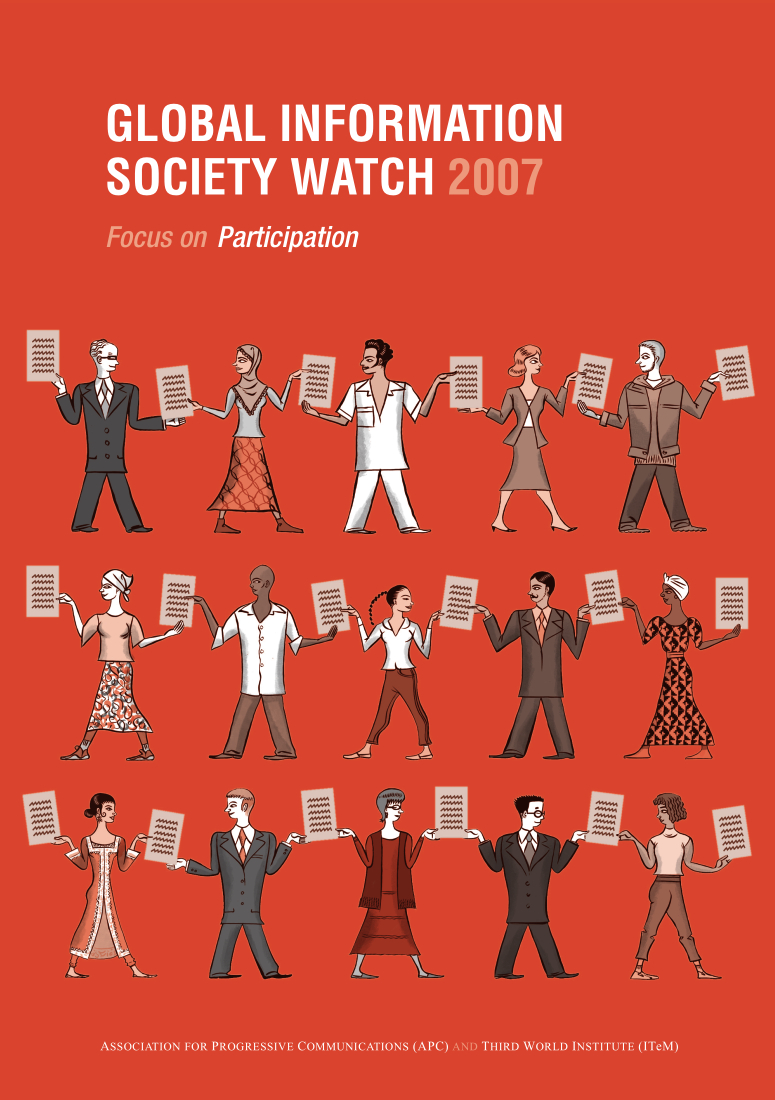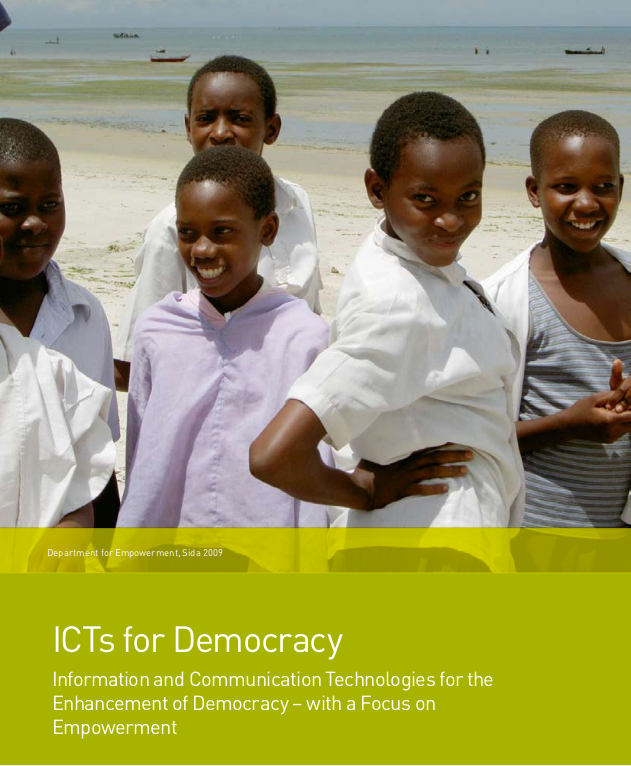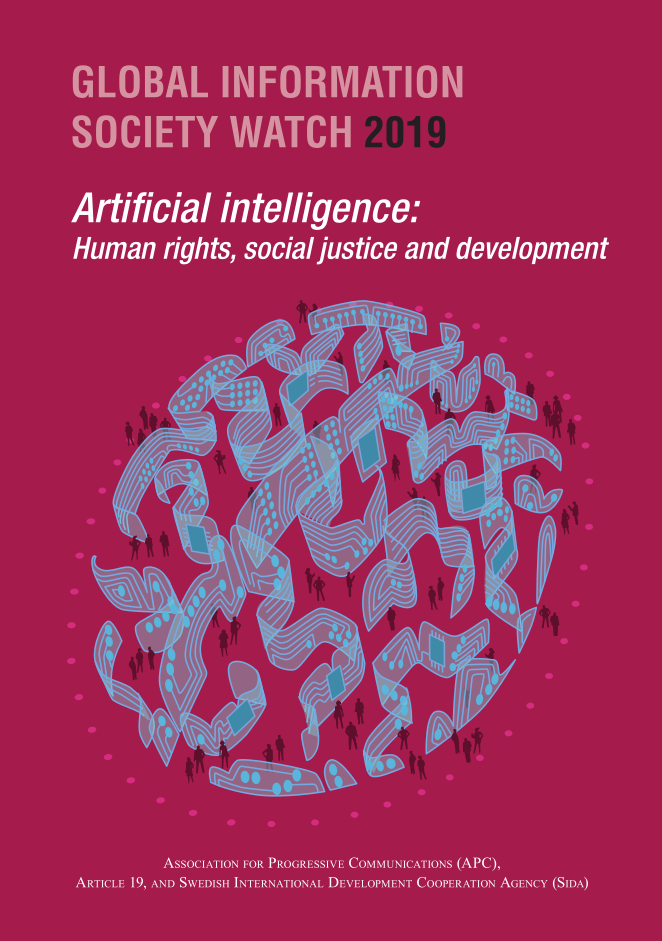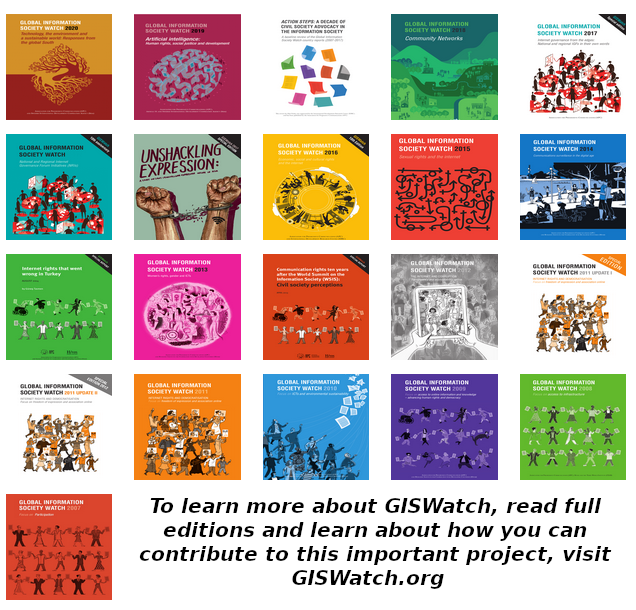
This is the fourth installment in the series celebrating 15 years of APC’s publication, Global Information Society Watch (GISWatch), exploring the origins of this powerful project while looking toward the future. Helen Belcastro, Senior Program Specialist at Swedish International Development Cooperation Agency (Sida), reflects on how the initial support for GISWatch led to a strong and impactful collaboration.
When I started my position as an ICT-advisor at Sida in 2007, one of my main assignments was to identify a partner active within the area of democracy and ICT and based in and focused on the specific priorities of the “global South”. I immediately thought of APC, which I had come across in my previous work in civil society and studies of internet and communication for development.
My colleagues at the small ICT-secretariat had also identified APC as an interesting and potential partner and this led to us approaching APC formally for collaboration.
In fact, through initial contacts with Anriette Esterhuysen, as APC executive director at the time, our very first collaboration was support to GISWatch in 2007 with the focus on Participation, where Sida had an interest in including a few partner countries in Eastern Africa. The result was the first edition of the publication. The collaboration was mutually beneficial and went over expectation.

After this positive start, we proposed APC to conduct a study of ICT’s for democracy in three partner countries of Sweden; Kenya, Uganda and Tanzania; ICTs for Democracy | Sida. This study and the collaboration with APC, was instrumental for Sida’s and indeed Sweden’s continued focus on ICT’s and internet for democratic participation and transformation.

Over the years, it has been positive to note the inclusion and launching of ever-relevant and timely editions of GISWatch in various multilateral forums and international and national contexts.
The collaboration between APC and Sida has been very fruitful. Sida quite early on started to provide core support to APC as our interests have coincided, and APC has been an important contributor to Swedish initiatives, such as the Stockholm Internet Forum and to international fora such as the UN Internet Governance Forum and civil society initiatives such as RightsCon organised by Access Now, which Sida is supporting.
APC was also instrumental in the process leading up to the adoption of the resolution on “the promotion, protection and enjoyment of human rights on the Internet” at the UN Human Rights Council. The resolution – led by a core group of Brazil, Nigeria, Sweden, Tunisia and the United States, and co-sponsored by 70 countries from all regions – was adopted by a vote with strong support at the Council on 13 July 2021.
Many of the issues, also covered by GISWatch, which presently need our attention in the realm of ICT’s and internet, are global issues and concerns, such as freedom of expression and information, dis- and misinformation, safety/security and integrity issues and artificial intelligence.

However “real access” issues, including affordability, physical access/infrastructure, power imbalances and literacy, have regrettably remained relevant for a large part of the population, especially for people living in various form of poverty and repression, such as marginalised and discriminated groups, especially women and girls, lacking access to resources and power.
Sida appreciates that APC and GISWatch still offers a civil society perspectives mostly from the global South and in this way has remained a unique and relevant resource for information and advocacy among stakeholders who share these priorities.
GISWatch 15th anniversary series
- Part I: This inaugural piece by long-time GISWatch editor Alan Finlay is the first in a series that celebrates and examines how far we've come and where we need to head next. Read more.
- Part II: This second installment by APC's former executive director Anriette Esterhuysen considers how GISWatch has forged its own path by bringing together theory and action, evidence and experience. Read more.
- Part III: This third installment explores reflections of what it means to write for this long-running project with Y. Z. Ya'u, a long-time Nigeria-based contributor to the report. Read more.
- Part IV: The fourth installment examines how the initial support for GISWatch led to a strong and impactful collaboration with the Swedish International Development Cooperation Agency. Read more.
- Part V: This the fifth installment connects us with Pablo Accuosto, the project's first coordinator, who explains how GISWatch developed into a groundbreaking publication and fundamental source of information. Read more.
- Part VI: The sixth installment comes from Florencia Roveri, a long-standing author from Nodo TAU who has been contributing significantly to Argentina country reports since the inception of GISWatch. Read more.
- Part VII: The seventh installment considers the reflections of researchers around the globe who have contributed to the report year after year, including the latest edition, GISWatch 2021-2022: Digital futures for a post-pandemic world. Read more.
